Conference Presentations by Elaheh Habibi

Drawing on the idea of 'mediation' as fundamentally a material process, this panel explores how d... more Drawing on the idea of 'mediation' as fundamentally a material process, this panel explores how digitisation offers new forms of transmission and material mediation of Islam. In the past few years, anthropologists, art historians, and scholars of material culture, religion, and media have long studied the idea of religion as mediation, which indicates a shift from conceptions of belief toward materiality and practice. (Birgit Meyer 2005, Hent de Vries, David Morgan Brian, Larkin, Mattijs van de Port 2006). Focusing on specific religious objects in the contemporary Muslim world and their digital reconfiguration, we seek to shed new lights on the link between religion and media, as well as to examine the way innovations in digital technology have informed the societal change. Using the lens of mediation and materiality, we study specific groups of objects within different mediums namely a digitised archive collection of photographs taken during the Iran-Iraq war (1980-1988) and postwar reconstruction of mosques in Bosnia and Herzegovina during which digital anastylosis procedure has been employed by architects. We thus want to explore how the transformative power of technological innovations has influenced, framed and (re)shaped the visual and material mediation of Islam over the last decades? Those interested in participating in the workshop and presenting a paper should submit a title and a proposal of no more than 500 words to Elaheh Habibi (elaheh.habibi@inha.fr). The deadline for submission is 13 December 2020.

Theme: Contesting authority: knowledge, power and expressions of selfhood The ENIS Spring School ... more Theme: Contesting authority: knowledge, power and expressions of selfhood The ENIS Spring School 2020 addresses two closely interrelated aspects of Islam in the digital age. Firstly, how (past and contemporary) technological revolutions have informed the performance of selfhood (including gender), the modes of engagement with society, and the political consequences of shifting boundaries between public and private spheres. Secondly, it addresses the construction and transformation of religious authority and religious knowledge production, and concomitant questions of legitimacy, power and discipline, under changing circumstances. Presently there is a mushrooming of YouTube channels presenting testimonials and life accounts, face book pages providing space for minority groups (e.g. homosexuals or ex-Muslims) that publicise previous hidden aspects of identity, as well as blogs and homemade videos communicating everyday life events or short clips showing artistic performance in an affordable non-celebrity style sharing them with a wide audience. Quite often they contain an (implicit) political statement about the societies in which the expressions are uttered, not only in the message but also in the mere fact of the utterance. (Young) people in the Muslim world, like elsewhere, share more and more aspects of self, including more intimate and previously hidden ones, or experiences with 'illegality'. These new digital forms of self-expression also entail a claim to space for individualised selfhood. Out of sight of different regimes of surveillance, forms of marginality, secret lives and intimate experiences take on a more public form. With that it questions dominant forms of authority, whether parental, communal, religious or political. The Muslim / Arab world is usually characterised as stressing communal or relational forms of identities and putting less emphasis on individualised selfhood in comparison to the West. The Arab Uprisings first seemed to overturn some deeply rooted forms of authority, including with respect to political power, but now long-established authoritarian forms of power with their different nuances appear to be square back. Yet several observers notice a 'silent revolution' taking place on an individual level, asserting individual selfhood and rights. Do these new forms of self-narratives and artistic performances offer us insight into the development of new forms of selfhood? What are the most important characteristics and expressive forms of these new forms of selfhood? What are the potential political consequences of new forms of self-understanding and expression? Issues of selfhood and artistic performance are closely linked to questions of legitimacy, power and discipline. Muslims have held varying, sometimes conflicting, views on the extent to which knowledge and authority are exclusive of a single figure, a masculine 'professional' group, or distributed in society, how knowledge should be transmitted and controlled, and the literary forms that it should take, and how it should be reproduced. The widely held assumption that in the pre-digital era Islamic reasoning was a collective matter of established scholars and theology-centred argumentation lacks historical pedigree. The individual as a political subject emerged centuries before the dawn of digital technology. This also questions
projects by Elaheh Habibi

Mediating Islam in the Digital Age, 2019
The Marie Curie ITN proposal ‘Mediating Islam in the Digital Age’ (MIDA) has been awarded. An int... more The Marie Curie ITN proposal ‘Mediating Islam in the Digital Age’ (MIDA) has been awarded. An international consortium of research institutes, universities and non-academic partners in six European countries has been awarded with a research grant from the Department for Research and Innovation of the European Commission in June 2018. MIDA is coordinated by the ‘Centre National de la Recherche Scientifique’ (CNRS) in Paris. Twelve beneficiaries and thirteen partner organisations are part of the consortium including two units of the CNRS, UMS 2000, ‘Institut d’études de l’Islam et des sociétés du monde musulman’ (IISMM, EHESS) and USR 3103, ‘L’information visuelle et textuelle en histoire de l’art: nouveaux terrains, corpus, outils’ (InVisu), as well as UMR 196, ‘Centre population et développement (CEPED, IRD). MIDA Scientific Coordinator is Pascal Buresi (CNRS-EHESS). The two other scientists in charge in France are Penelope Larzillière (Ceped, IRD), and Mercedes Volait (InVisu, CNRS). Partner organisations include École des hautes études en sciences sociales (EHESS), Université Paris I Panthéon Sorbonne, and Centre Pompidou. ITN programs are designed to combine scientific research with an intensive training trajectory for young scholars in order to equip them with the necessary comprehensive knowledge and skills. These researchers work in an inter-sectoral, interdisciplinary and international environment to deepen their knowledge and to find answers to pressing contemporary societal issues. The MIDA-project rests on the premise that digitisation and technological innovations have a tremendous impact on Islam, the effects of which are diverse and ubiquitous. They include first and foremost modes of expression and communication of religious messages and traditions and modes of engagement with society. Digitisation and concurrent innovations as they emerged in the past decades belong to the list of comparable fundamental technological transformations in human history such as the invention of paper, printing technology, steam power, electricity and telecommunication, which constituted major upheavals, even if these were not experienced in all societies and by everyone at the same time, in the same way. It is commonly recognised that the digital revolution will indeed deeply transform human societies, much as the ind

MSCA-H2020-ITN 813547 MIDA, 2019
Open Science and Scholarly Communication
The first training in Data Management is co-organised w... more Open Science and Scholarly Communication
The first training in Data Management is co-organised with the Centre for Digital Scholarship (CDS) of Leiden University (UL / NISIS) together with the International academic publisher Brill. Both of them offer courses and workshops on the challenges and opportunities of academic e-publishing for graduate students.
The central objective of the Centre for Digital Scholarship is to support and to facilitate digital scholarship within the academic sector. Built on the pillars Open Access, Data Management and Re-use of Digital Data, the CDS provides support for Open Science.
The International academic publisher Brill has unique expertise of disseminating scholarly publications in the field of Middle East studies, with its specific section on Middle East, Islamic, and African Studies.
PS Media, the documentary film production and media consulting based in Berlin and one of MIDA's non-academic partner, will produce some interviews with the Early Stage Researchers.
Brochure by Elaheh Habibi

Kunstraum Kreuzberg, 2023
An exhibition of Kunstraum Kreuzberg/Bethanien curated by Selda Asal, Şirin Fulya Erensoy and Özl... more An exhibition of Kunstraum Kreuzberg/Bethanien curated by Selda Asal, Şirin Fulya Erensoy and Özlem Sarıyıldız supported by the Hauptstadtkulturfonds and the Senate Department for Culture and Europe (Exhibition Fund for Municipal Gallery and Fund for Exhibition Remuneration of Visual Artists). Beyond Home is a project consisting of four parts: (1) an exhibition at Kunstraum Kreuzberg/Bethanien, (2) a trailer, (3) the presentation of the Women Artists‘ Web Archive, and (4) a zine. The project brings to light the contradictory understanding HOME evokes and deconstructs the image of the home historically imposed and perpetuated in patriarchal contexts. The project involves women* artists from Turkey, Iran, Lebanon, Syria, Palestine, Afghanistan, Iraq, Ukraine and Belarus. These are essentially women who come from occupied territories and/or conflict zones and have moved to Berlin in the last ten years. Based on Sara Ahmed’s concept of the „feminist killjoy,“ the project focuses on critically examining Germany’s discursive comfort zones in relation to migration and border politics through the various artistic works.
The following questions are in the foreground: What if HOME is not an ontologically safe space? What if it does not offer refuge? Or stability? What if we have more than one home? If home is the space through which the fundamental forms of social relations and social institutions are constituted and reproduced, and which becomes the gatekeeper, so to speak, of the status quo, how can we uncover the mechanisms of power that underlie these frameworks? In light of these questions, the project moves beyond romanticized clichés of HOME of forced positionings of either “here” or there” and of imaginative journeys feeding displacement and emplacement discourses. The project chooses a feminist approach to reflect on migration experiences from an intersectional perspective and to create a discussion platform for possible alliances for a more just and equitable future.

The Innovative Training Network programs (ITN) are designed to combine scientific research with a... more The Innovative Training Network programs (ITN) are designed to combine scientific research with an intensive training trajectory for young scholars in order to equip them with the necessary comprehensive knowledge and skills. These researchers work in an inter-sectoral, interdisciplinary and international environment to deepen their knowledge and to find answers to pressing contemporary societal issues. An international consortium of research institutes, universities and non-academic partners has been awarded with a research grant from the Department for Research and Innovation of the European Commission in June 2018. MIDA is coordinated by the 'Centre National de la Recherche Scientifique' (CNRS) in Paris. The MIDA project rests on the premise that digitisation and technological innovations have a tremendous impact on Islam, the effects of which are diverse and ubiquitous. They include first and foremost modes of expression and communication of religious messages and traditions and modes of engagement with society. Digitisation and concurrent innovations as they emerged in the past decades belong to the list of comparable fundamental technological transformations in human history such as the invention of paper, printing technology, steam power, electricity and telecommunication, which constituted major upheavals, even if these were not experienced in all societies and by everyone at the same time, in the same way. It is commonly recognised that the digital revolution will indeed deeply transform human societies, much as the industrial revolution did in the nineteenth century. However, the rapid changes that are currently taking place generate a sense of loss of control and instability among the general public, politicians, journalists, academics, and, not least, among Muslims themselves. The spread of modern digital media and new technologies of communication, production and dissemination, prompts researchers and social actors, Muslims and non-Muslims alike, to make sense of, and understand these developments. Consequently, they have shaken up Islam as a field of academic study and have impacted on the ways Islam is to be studied in the future. The specificity of the current digital revolution calls for a re-evaluation of past situations and reflection on future prospects. MIDA assesses these developments in all their dimensions by formulating three major questions: How does digitisation (1) shape Islam (i.e. beliefs, practices, societies, activism, political organisations, social institutions, and outlooks); (2) modify the relation Muslims have with their past; (3) modify and reorganise scholarship and research on Islam. The MIDA project aims to train 15 creative, entrepreneurial, and innovative researchers in social and human sciences through an interdisciplinary research programme, whose main objectives are to understand the tremendous influence that digitisation and technological innovations have on Islam.
Thesis Chapters by Elaheh Habibi

This text supplements my film About Love in a Small Island, a participatory and reflexive film ex... more This text supplements my film About Love in a Small Island, a participatory and reflexive film exploring the meaning of love among a Sunni Muslim community in an Iranian village on Qeshm Island. At the heart of this work is a Qeshmi family of herders and their close relatives whose experience of love and marriage speaks to and problematises the existing anthropological literature on romantic love and marriage. Drawing upon the arguments of two anthropologists of marriage, Kimberley Hart (2007) and Michelle Obeid (2018), I problematise the concept of individualism that precludes and excludes forms of ‘sociocentrism’. Following this argument, I argue that love and elopement marriages should not be seen merely through the lens of individual desire and acts against the social order of the community, but rather they should be seen as located at the intersection of intimacy and kin ties. Situating my film in the context of Iranian cinema, this visual project is also a contribution to the struggle of Iranian filmmakers to
represent love and sexual relationships on the screen under the Islamic Republic state’s control.

This thesis explores the domestic and international activities of the biggest Iranian leftfeminis... more This thesis explores the domestic and international activities of the biggest Iranian leftfeminist organization of the 1940s era: Tashkilat-e Zanan (Women’s Association). Based on archival materials from the National Library and Archive Organization of Iran, and the Archives of Islamic Republic of Iran in Tehran, periodical press, memoirs, and a congress report of the Women’s International Democratic Federation of which the WA was a member organization, this thesis tried to answer three questions: 1) What assumptions have shaped the leftist and feminist historiography of the Women’s Association? 2) What were the origins, agenda and strategy of the WA in its struggle for women’s rights? 3) How did Iranian women struggle for women’s rights through their fight against imperialism? Through a critical review of the Iranian leftist and women’s movement literature, I identified three assumptions stemming from the Cold War paradigm, which have led feminist historians to exclude the WA from the mainstream narratives. These assumptions were: 1) the independent women’s rights movement ended in 1932, when the last “independent” women’s organization, the Patriotic Women’s League (PWL), was banned by the Iranian government 2) The women’s organizations of the post-1940 era, were ‘subservient’ to the parties to which they were affiliated 3) Women’s rights issues became ‘secondary’ and ‘subordinate’ to the issues emphasized by the WA. I argue that my findings allow me to challenge these assumptions and to posit instead that the WA was a left feminist organization that consistently fought for women’s rights, that it did so with an emphasis on anti-imperialism and anti-colonialism, and that the WIDF provided an important platform and support for the WA and its political struggle regarding the interrelated fields of women’s rights and anti-imperialism.
Guest Lecture by Elaheh Habibi

Que les contours en aient été déterminés par des réformes endogènes, par la colonisation, par les... more Que les contours en aient été déterminés par des réformes endogènes, par la colonisation, par les conditions de la Guerre froide et/ou celles de la décolonisation, la création artistique sur le pourtour sud et est méditerranéen, et au-delà dans la Péninsule arabique et en Asie centrale, a été le produit à la fois d’interactions supranationales et d’enracinements locaux variés, qui se sont matérialisés dans toutes sortes d’innovations et d’hybridations, d’échappées particulières et de dyschronies. L’étude et la déconstruction de ce champ artistique se sont pourtant principalement occupées jusqu’à présent des stéréotypes véhiculés par le « centre » sur ses « périphéries ». L’objectif du séminaire est de renverser la focale pour placer le Maghreb et le Moyen-Orient en tant que territoires de création artistique au cœur de l’enquête. Il est aussi de transgresser les approches par médium qui segmentent et obscurcissent les problématiques communes aux arts plastiques, aux arts décoratifs et à l’architecture de cette aire géoculturelle. Dans cette exploration d’une approche plurimédiale, plus interactionniste et multipolaire des œuvres et des mondes de l’art qui y ont vu le jour, quelle importance accorder aux caractéristiques visuelles, esthétiques et techniques des œuvres ? Leur prise en compte ne doit-elle pas accompagner, voire enrichir l’analyse sociopolitique, dans l’optique de contextualiser le regard et ainsi favoriser l’engagement dans les territoires étudiés et vis-à-vis des sociétés qui les composent ? Ouvert aux masterants et doctorants, le séminaire s’adosse aux travaux, outils et ressources numériques développés par le laboratoire InVisu dans le cadre de contrats de recherche français et européens et de partenariats diversifiés.
Séminaire hebdomadaire du laboratoire InVisu organisé par Nadine Atallah (Paris I-InVisu), Juliette Hueber, et Mercedes Volait (CNRS-InVisu), du 14 janvier au 17 mars 2020.
Galerie Colbert, Université Paris 1, Panthéon-Sorbonne, Paris 2e.
Papers by Elaheh Habibi
The ENIS Spring School 2020 addresses two closely interrelated aspects of Islam in the digital ag... more The ENIS Spring School 2020 addresses two closely interrelated aspects of Islam in the digital age. Firstly, how (past and contemporary) technological revolutions have informed the performance of selfhood (including gender), the modes of engagement with society, and the political consequences of shifting boundaries between public and private spheres. Secondly, it addresses the construction and transformation of religious authority and religious knowledge production, and concomitant questions of legitimacy, power and discipline, under changing circumstances

Que les contours en aient été déterminés par des réformes endogènes, par la colonisation, par les... more Que les contours en aient été déterminés par des réformes endogènes, par la colonisation, par les conditions de la Guerre froide et/ou celles de la décolonisation, la création artistique sur le pourtour sud et est méditerranéen, et au-delà dans la Péninsule arabique et en Asie centrale, a été le produit à la fois d’interactions supranationales et d’enracinements locaux variés, qui se sont matérialisés dans toutes sortes d’innovations et d’hybridations, d’échappées particulières et de dyschronies. L’étude et la déconstruction de ce champ artistique se sont pourtant principalement occupées jusqu’à présent des stéréotypes véhiculés par le « centre » sur ses « périphéries ». L’objectif du séminaire est de renverser la focale pour placer le Maghreb et le Moyen-Orient en tant que territoires de création artistique au cœur de l’enquête. Il est aussi de transgresser les approches par médium qui segmentent et obscurcissent les problématiques communes aux arts plastiques, aux arts décoratifs et à l’architecture de cette aire géoculturelle. Dans cette exploration d’une approche plurimédiale, plus interactionniste et multipolaire des œuvres et des mondes de l’art qui y ont vu le jour, quelle importance accorder aux caractéristiques visuelles, esthétiques et techniques des œuvres ? Leur prise en compte ne doit-elle pas accompagner, voire enrichir l’analyse sociopolitique, dans l’optique de contextualiser le regard et ainsi favoriser l’engagement dans les territoires étudiés et vis-à-vis des sociétés qui les composent ? Ouvert aux masterants et doctorants, le séminaire s’adosse aux travaux, outils et ressources numériques développés par le laboratoire InVisu dans le cadre de contrats de recherche français et européens et de partenariats diversifiés. Séminaire hebdomadaire du laboratoire InVisu organisé par Nadine Atallah (Paris I-InVisu), Juliette Hueber, Claudine Piaton et Mercedes Volait (CNRS-InVisu), du 22 janvier au 16 avril 2019. Galerie Colbert, Université Paris 1, Panthéon-Sorbonne, Paris 2e. https://invisu.inha.fr/fr/recherche/seminaire/arts-visuels.html

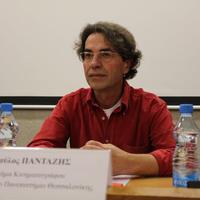
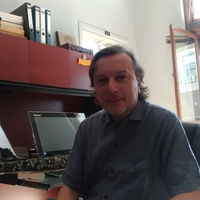
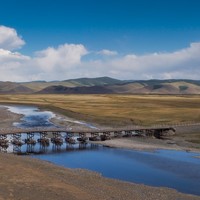

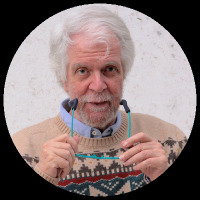




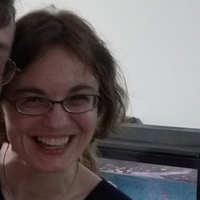
Uploads
Conference Presentations by Elaheh Habibi
projects by Elaheh Habibi
The first training in Data Management is co-organised with the Centre for Digital Scholarship (CDS) of Leiden University (UL / NISIS) together with the International academic publisher Brill. Both of them offer courses and workshops on the challenges and opportunities of academic e-publishing for graduate students.
The central objective of the Centre for Digital Scholarship is to support and to facilitate digital scholarship within the academic sector. Built on the pillars Open Access, Data Management and Re-use of Digital Data, the CDS provides support for Open Science.
The International academic publisher Brill has unique expertise of disseminating scholarly publications in the field of Middle East studies, with its specific section on Middle East, Islamic, and African Studies.
PS Media, the documentary film production and media consulting based in Berlin and one of MIDA's non-academic partner, will produce some interviews with the Early Stage Researchers.
Brochure by Elaheh Habibi
The following questions are in the foreground: What if HOME is not an ontologically safe space? What if it does not offer refuge? Or stability? What if we have more than one home? If home is the space through which the fundamental forms of social relations and social institutions are constituted and reproduced, and which becomes the gatekeeper, so to speak, of the status quo, how can we uncover the mechanisms of power that underlie these frameworks? In light of these questions, the project moves beyond romanticized clichés of HOME of forced positionings of either “here” or there” and of imaginative journeys feeding displacement and emplacement discourses. The project chooses a feminist approach to reflect on migration experiences from an intersectional perspective and to create a discussion platform for possible alliances for a more just and equitable future.
Thesis Chapters by Elaheh Habibi
represent love and sexual relationships on the screen under the Islamic Republic state’s control.
Guest Lecture by Elaheh Habibi
Séminaire hebdomadaire du laboratoire InVisu organisé par Nadine Atallah (Paris I-InVisu), Juliette Hueber, et Mercedes Volait (CNRS-InVisu), du 14 janvier au 17 mars 2020.
Galerie Colbert, Université Paris 1, Panthéon-Sorbonne, Paris 2e.
Papers by Elaheh Habibi
The first training in Data Management is co-organised with the Centre for Digital Scholarship (CDS) of Leiden University (UL / NISIS) together with the International academic publisher Brill. Both of them offer courses and workshops on the challenges and opportunities of academic e-publishing for graduate students.
The central objective of the Centre for Digital Scholarship is to support and to facilitate digital scholarship within the academic sector. Built on the pillars Open Access, Data Management and Re-use of Digital Data, the CDS provides support for Open Science.
The International academic publisher Brill has unique expertise of disseminating scholarly publications in the field of Middle East studies, with its specific section on Middle East, Islamic, and African Studies.
PS Media, the documentary film production and media consulting based in Berlin and one of MIDA's non-academic partner, will produce some interviews with the Early Stage Researchers.
The following questions are in the foreground: What if HOME is not an ontologically safe space? What if it does not offer refuge? Or stability? What if we have more than one home? If home is the space through which the fundamental forms of social relations and social institutions are constituted and reproduced, and which becomes the gatekeeper, so to speak, of the status quo, how can we uncover the mechanisms of power that underlie these frameworks? In light of these questions, the project moves beyond romanticized clichés of HOME of forced positionings of either “here” or there” and of imaginative journeys feeding displacement and emplacement discourses. The project chooses a feminist approach to reflect on migration experiences from an intersectional perspective and to create a discussion platform for possible alliances for a more just and equitable future.
represent love and sexual relationships on the screen under the Islamic Republic state’s control.
Séminaire hebdomadaire du laboratoire InVisu organisé par Nadine Atallah (Paris I-InVisu), Juliette Hueber, et Mercedes Volait (CNRS-InVisu), du 14 janvier au 17 mars 2020.
Galerie Colbert, Université Paris 1, Panthéon-Sorbonne, Paris 2e.